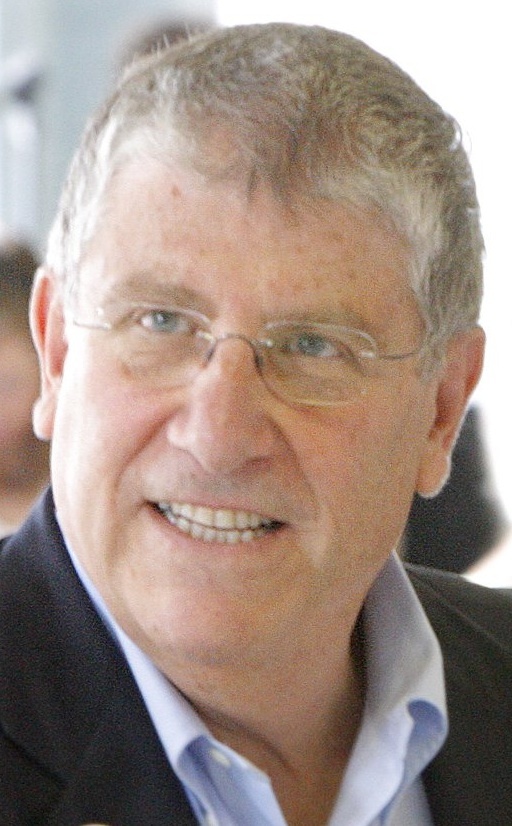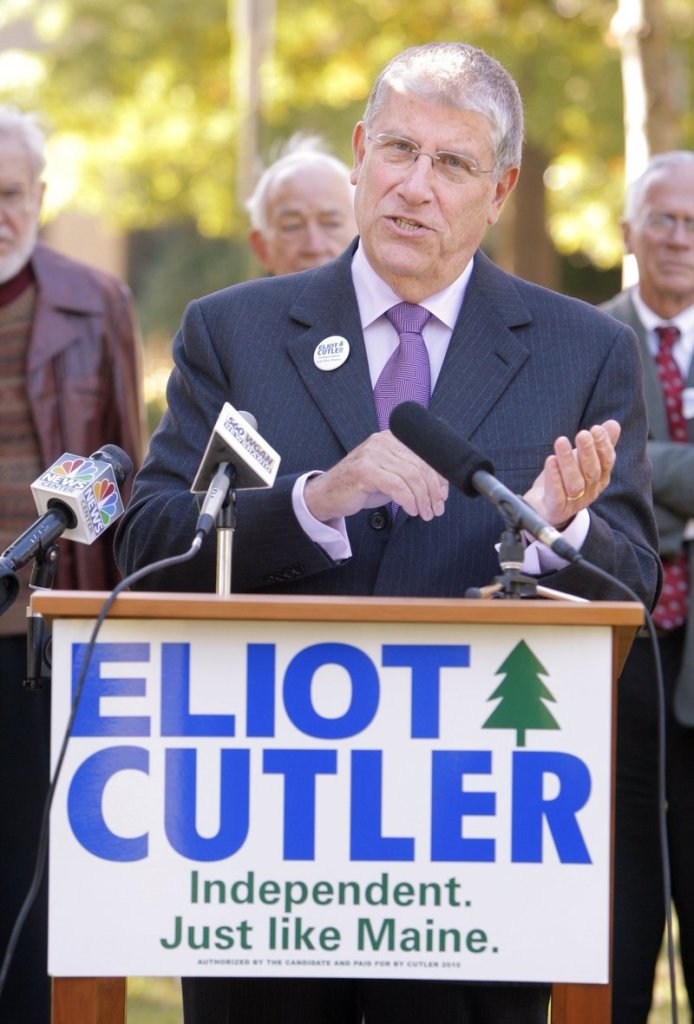PORTLAND — A legal battle over whether a political website attacking a candidate has a right of anonymity is moving forward in U.S. District Court, but nearly all the documents are sealed from view.
At least for now. Attorneys on both sides are fighting over which documents should be made public.
On the surface, the dispute is over a $200 fine for the failure to include a disclaimer on “The Cutler Files” website identifying who paid for the site. The site appeared in the final months of the 2010 gubernatorial race and was highly critical of Eliot Cutler, who ran as an independent and finished second in the election to Paul LePage, now the Republican governor.
The legal case has become a four-way brawl involving two former gubernatorial candidates, a high-profile political operative and the American Civil Liberties Union of Maine.
Moreover, the state’s largest newspaper, The Portland Press Herald, plans to enter the fray over the issue of public access to documents and emails.
The case highlights the conflict between a political campaign’s right to privacy versus the public’s right to know who is manipulating opinion during an election.
The case so far is shrouded in the kind of secrecy one might expect in a trial involving juveniles or a sexual assault, said Jonathan Piper, an attorney for the Press Herald.
Because so many documents and motions are classified as confidential, it’s difficult for the public to understand what the suit is about, he said. The newspaper will seek to intervene in the case to compel that documents be made public.
“All of this is extremely unusual and disturbing in light of the fact that our federal courts are historically and constitutionally open to the public,” he said.
The courts have ruled, however, that the U.S. Constitution gives First Amendment protection to people involved in political campaigns, said Jamie Wagner, attorney for Thom Rhoads. Rhoads is married to Rosa Scarcelli, a Portland Democrat who last year had unsuccessfully run in the Democratic gubernatorial primary.
Wagner said campaign workers and volunteers would be afraid to communicate with each other openly if they knew that a political opponent could file a lawsuit to get access to the internal workings of a campaign.
“It would have a chilling effect,” he said.
Wagner said Eliot Cutler’s lawyers have dragged Rhoads into the case.
The Cutler Files website was active from about Aug. 30 through the election on Nov. 2. After weeks of denying any connection to the site, Bailey, owner of the Savvy Inc. public relations firm, identified himself in December as one of its creators.
Rhoads later identified himself as the co-creator. Bailey was Scarcelli’s political adviser during her unsuccessful primary campaign.
Bailey and Rhoads identified themselves after an investigation by the Maine Commission on Governmental Ethics and Election Practices.
Bailey was fined $200 for failing to disclose the names of people behind the website. In March, he filed a suit contending that the state violated his rights because anonymous speech is protected under the First Amendment. The Civil Liberties Union of Maine is providing legal assistance to Bailey.
Cutler has intervened in the lawsuit on the side of the state, and Rhoads has hired his own attorney.
U.S. Magistrate Judge Margaret Kravchuk, who is hearing the case, is expected in January to either make a ruling or send the issue to trial.
At stake is the future legal status of anonymous websites in Maine politics and whether the people behind them have the same First Amendment protections enjoyed by traditional media, such as newspapers, or should be required to follow campaign finance and disclosure laws.
While attorneys are preparing their arguments, Kravchuk so far has allowed the emails and documents gathered during the discovery process to be sealed, meaning they are hidden from public view.
Many of the motions filed with the court have also been sealed.
However, the judge is also allowing both sides to make arguments about why the public should or should not have access to the documents. She is expected to make a ruling on the disclosure issues in early December.
In addition, Cutler’s attorneys want Rhoads to give them a document he wrote during the general election campaign last year for a presentation to the Democratic Governors Association.
Rhoads had attempted during the campaign to sell research on Cutler to Democratic nominee Libby Mitchell for $30,000, according to ethics commission documents.
David Kallin, an attorney for Cutler, said the judge has laid out a standard process for resolving confidentiality issues. However, the large number of documents that Bailey and Rhoads want to shield from public view is unusual, he said.
Bailey wants to keep the documents confidential to protect third parties unrelated to the suit, not himself, said his attorney, John Paterson.
Staff Writer Tom Bell an be contacted at 791-6369 or at: tbell@pressherald.com
Send questions/comments to the editors.





Success. Please wait for the page to reload. If the page does not reload within 5 seconds, please refresh the page.
Enter your email and password to access comments.
Hi, to comment on stories you must . This profile is in addition to your subscription and website login.
Already have a commenting profile? .
Invalid username/password.
Please check your email to confirm and complete your registration.
Only subscribers are eligible to post comments. Please subscribe or login first for digital access. Here’s why.
Use the form below to reset your password. When you've submitted your account email, we will send an email with a reset code.